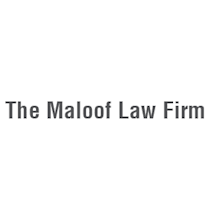Top Newnan, GA Larceny Lawyers Near You
Over 25 Years Experience in Helping Clients with Their Criminal Defense.
Free Consultation
Accused of A Crime? You Deserve Skilled Advice. Call Me Today!
Free Consultation
Cuadra & Patel has over 29 years of experience and we guarantee effective and aggressive representation.
Se Habla Español
Free Consultation
Virtual Appointments
4056 Wetherburn Way NW, Suite 3, Peachtree Corners, GA 30092
The Carnell Law Firm, LLC has years of experience helping clients with their Larceny needs in Newnan, Georgia.
Se Habla Español
Free Consultation
21 Lee Street, Jonesboro, GA 30236
The Frey Law Firm has experience helping clients with their Larceny needs in Newnan, Georgia.
50 Hurt Plaza, The Hurt Building, Suite 1145, Atlanta, GA 30303
Other Nearby Offices
Law Offices of David N. Ghazi has experience helping clients with their Larceny needs in Newnan, Georgia.
Se Habla Español
Free Consultation
Virtual Appointments
123 Church Street NE, Suite 220, Marietta, GA 30060
David West & Associates has experience helping clients with their Larceny needs in Newnan, Georgia.
Free Consultation
215 North McDonough Street, Decatur, GA 30030
Clients needing legal solutions for Larceny can connect with The Maloof Law Firm, a local Georgia practice.
365 Northridge Rd, Suite 230, Atlanta, GA 30350
1331 Spring St NW, Suite 1400, Atlanta, GA 30309
950 The Lenox Building, 3399 Peachtree Road, Atlanta, GA 30326-1120
1170 Peachtree Street, NE, Suite 2400, Atlanta, GA 30309-7676
1227 Rockbridge Rd SW, PMB 348 Suite 208, Stone Mountain, GA 30087
912 Holcomb Bridge Rd, Suite 203, Roswell, GA 30076
511 East Paces Ferry Road, N.E., Atlanta, GA 30305
3348 Peachtree Rd NE, Suite 1400, Atlanta, GA 30326
PO Box 70, McDonough, GA 30253
1230 Peachtree St NE, Suite 1900, Atlanta, GA 30309
1100 Peachtree Street NE, Suite 200, Atlanta, GA 30309
3546 Habersham at Northlake Rd, Tucker, GA 30084
1230 Peachtree St. NE, Suite 1700, Atlanta, GA 30309
8473 Earl D Lee Blvd, Suite 300, Douglasville, GA 30134
3101 Cobb Parkway SE, Suite 124, Suwanee, GA 30339
480 John Wesley Dobbs Ave NE, Unit 190, Atlanta, GA 30312
6474 Georgia Highway 400, Cumming, GA 30028
353 Dahlonega Street, Cumming, GA 30040
2039 Dayron Court, Marietta, GA 30062
1800 Peachtree Street NW, Suite 300, Atlanta, GA 30309
Newnan Larceny Information
Lead Counsel independently verifies Larceny attorneys in Newnan and checks their standing with Georgia bar associations.
Our Verification Process and Criteria
Ample Experience
Attorneys must meet stringent qualifications and prove they practice in the area of law they’re verified in.Good Standing
Be in good standing with their bar associations and maintain a clean disciplinary record.Annual Review
Submit to an annual review to retain their Lead Counsel Verified status.Client Commitment
Pledge to follow the highest quality client service and ethical standards.
What Is the Definition of Larceny?
The crime of larceny involves taking property of another with the intent to deprive the owner of the property. Larceny is another term for theft and is a criminal offense. The penalties for a larceny conviction often depend on the value of the property taken. Larceny can involve any type of personal property, including money, vehicles, phones, antiques, or jewelry.
The elements to prove theft vary by state, with some states having a separate criminal charge for larceny. In general, larceny is the wrongful taking or withholding of any property from the possession of the owner with the intent to permanently deprive another person of the use or benefit.
What Are Different Types of Larceny?
Larceny is generally divided up into grand larceny or petty larceny. Also called grand theft or petty theft, the difference between grand and petty is generally based on value. Other types of grand theft may be based on the type of property. In some cases, theft of a motor vehicle or stealing a firearm may be considered grand larceny, not depending on the value.
Not all states have theft categorized as petty or grand. In some states, theft laws may be categorized by degree of larceny, such as first-degree larceny or class B misdemeanor sixth-degree larceny. Different degrees or classes of larceny offenses may be based on the value of stolen items and carry different criminal penalties.
What Is the Difference Between Theft and Larceny?
Larceny is a type of theft. In some cases, the terms are used interchangeably. However, theft is generally a broader term that may include other types of theft crimes, including embezzlement, identity theft, burglary, and fraud.
For example, larceny and embezzlement are both crimes of theft but the difference is that embezzlement usually involves theft by someone in a position of trust or authority over the property taken for personal gain.
Is Stealing From a Store Larceny?
Stealing from a store is generally a type of larceny. Also known as shoplifting, larceny from a store involves taking goods or merchandise from a store without paying the full price. Retail larceny could also be committed by employees who may have more opportunities to steal merchandise without getting caught.
Is Grand Larceny a Felony?
Grand larceny is often a felony but can sometimes be charged as a misdemeanor. As a felony, a criminal conviction for larceny could result in more than a year in prison and fines. As a misdemeanor, the maximum penalty for larceny is generally up to a year in jail and a fine. Other possible penalties include community service, probation, and victim restitution.
A felony criminal record may continue to negatively impact your life for years. A felony conviction may prevent firearm ownership and make it harder to get a job or find a place to live.
What Happens If Someone Presses Charges for Theft in Georgia?
If someone presses charges for theft, the state prosecutor or district attorney may file criminal charges. The victim of theft may also be able to file a civil lawsuit against the defendant to recover damages. In general, a civil lawsuit will come after the criminal charges. If you are found guilty of larceny in criminal court, through pleading guilty or after a guilty verdict, it will make it much easier for the original property owner to win a civil lawsuit for damages.
Do I Need To Hire a Lawyer if I’m Facing Larceny Charges?
If you are facing criminal charges, your options generally include pleading guilty or fighting the criminal charges. A criminal defense attorney can advise you of your rights to make sure you understand the consequences of each option. If you want to fight the criminal charges, your lawyer can build on legal defenses for theft to get the larceny charge dropped or create reasonable doubt for a not guilty verdict.
Your criminal defense lawyer may also be able to negotiate a beneficial plea agreement. A plea deal may allow you to avoid other criminal charges or get a reduced sentence. If you are a first-time offender, your defense attorney may be able to get you into a diversion program. A diversion program provides an alternative to criminal sentencing that allows the defendant to avoid jail time and a criminal conviction by following the terms and conditions of the program.








